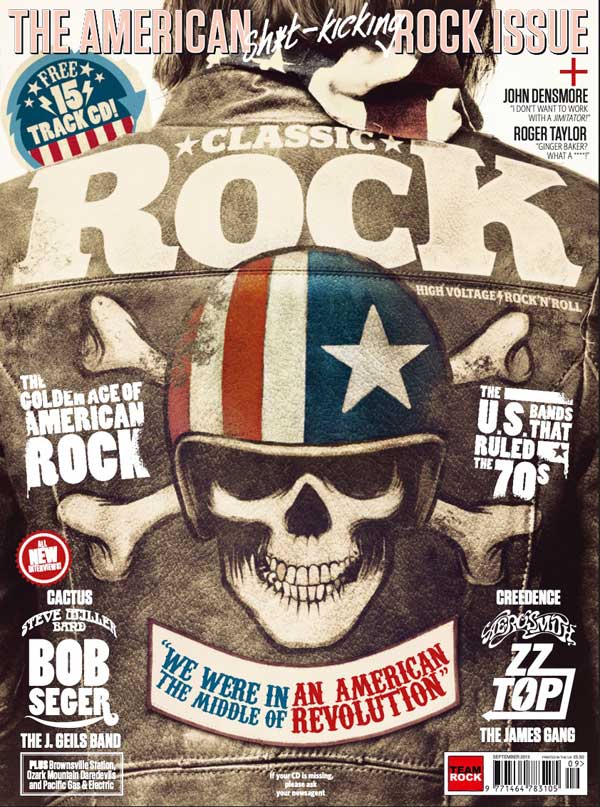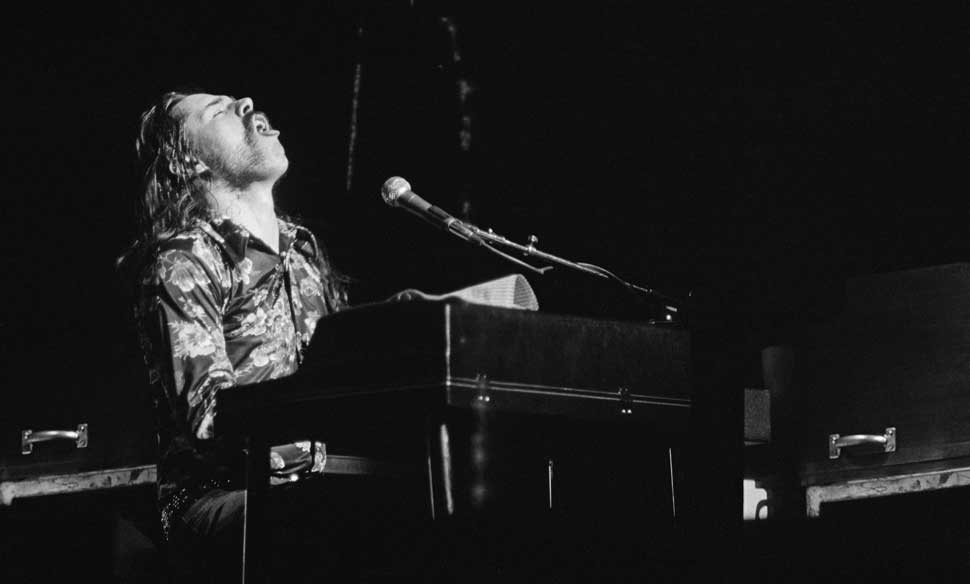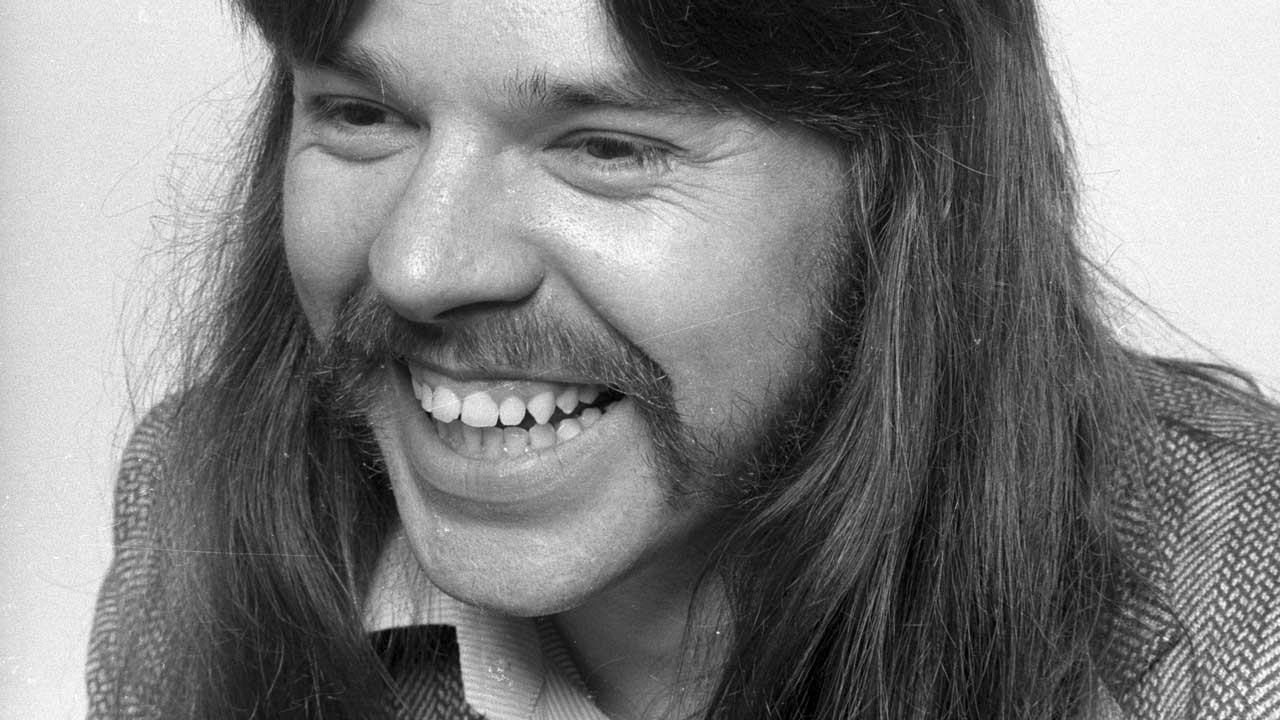In 2013, as Bob Seger prepared to cross the US on his Rock & Roll Never Forgets tour, the Detroit veteran sat down with Classic Rock to talk about his early years, from the hit that made him a regional star to the live album that made him a national treasure.
Ramblin’ Gamblin’ Man gave Bob Seger a Top 20 hit in 1968. The one-two punch of Live Bullet and Night Moves in 1976 turned him into a platinum-level superstar. The years in between made him a legend.
In the interim, the Michigan singer-songwriter was US rock’s prototypical journeyman, releasing seven albums that never took hold and making his living on the road, playing high-school gyms and dances, rock and folk clubs, even the occasional arena opening date. He worked in a variety of modes, including solo acoustic, in the lead-up to the 1973 formation of his Silver Bullet Band.
There were rough patches along the way, and Seger considered hanging up his guitar at one point. Ted Nugent recalls giving him an early 70s pep talk in Tennessee when Seger was “still vibrant but fatigued… frustrated. I said, ‘Just keep going, man. You know you’re great. You’ve just got to keep going.’” But Seger says he never doubted his efforts would be rewarded.
“In that period, even though we were playing, like, 250 nights a year, I could tell I had something because the audiences wanted me back,” says Seger, now 68 and ensconced in a 20-year marriage, and father to two college-aged children. “And we killed every night. So I knew I had something.”
That Seger merited a large audience was never in doubt. He was hooked at an early age, growing up in the liberal college town of Ann Arbor. “My dad made a big deal when I was, like, four years old about the fact that I sang I’m Looking Over A Four-Leaf Clover in the back of his ’49 Buick,” Seger recalls. “He just went nuts over that. I think that was maybe the very first inclination for me.”
Stewart Seger, an auto worker who played a variety of instruments and on weekends performed with bands, taught the youngest of his two sons some chords on the bass ukulele when Seger was nine. The rest is rock’n’roll history. A young Seger racked up regional hits with Doug Brown & The Omens (The Ballad Of The Yellow Beret) and, after meeting manager/producer Ed ‘Punch’ Andrews, on his own.
East Side Story, a Gloria-aping garage rocker, sold 50,000 copies, and the pounding Heavy Music was on the verge of breaking the Hot 100 when Cameo-Parkway Records went out of business. Seger subsequently chose Capitol Records over Motown. After scoring more local success with the anti-war 2+2=?, Ramblin’ Gamblin’ Man, with Seger protégé and future Eagle Glenn Frey singing back-up, ambled its way to No.17.
“I’ll never forget hearing Ramblin’ Gamblin’ Man for the first time,” says Don Brewer, then about to break big with Grand Funk Railroad and now double-duty drummer for Seger’s Silver Bullet Band. “I was saying, ‘Man, listen to this. Listen to hat B3 [Hammond organ],’ ‘cos we were totally R&B guys. ‘Listen to that – the whole song is nothing but B3! This is so cool!’“
“We’d had a few records that were popular around town and you’d hear on the radio a lot,” Seger adds, “but, yeah, that was a little different. That was a hit.”

But glory – including a free concert for 20,000 in the parking lot of a Detroit mall – was short-lived. Seger wouldn’t have another Top 40 hit for eight years and took just as long to get an album in the top half of the Billboard 200 chart. Theories range from poor management to lack of record company support to just plain bad luck.
Seger takes some of the blame. “I wasn’t necessarily a great songwriter at that time,” he acknowledges. “I think I focused more on playing the guitar and singing… even though Dylan and Van Morrison were important to me and influences on me. That craft was something that developed slowly.”
His second album, 1969’s Noah, was a bust, as much a showcase for Bob Seger System member Tom Neme, who wrote half the songs, as for Seger himself. He considered quitting and going to college, but instead made 1970’s Mongrel, featuring fan favourite Lucifer.
Despite highlights such as Michigan’s Goose Lake International Music Festival in 1970, and opening for John Lennon and Yoko Ono at the John Sinclair Freedom Rally in Ann Arbor, 1971, he shifted gears and went solo acoustic on the following year’s Brand New Morning, another commercial failure (Seger claimed, “most of it’s crap”) that marked the end of his Capitol tenure.
“People loved Bob that way, but to me it was a mixed blessing,” former road manager Tom Weschler says of his acoustic period. “Here’s Seger thinking, ‘I can do gigs like Simon & Garfunkel, without Garfunkel.’ And it worked. He was very good. But it wasn’t as good as the full-on thing. Fortunately, he quickly rekindled his appetite for a band.”
Seger hooked up with drummer David Teegarden and keyboardist Skip Knape, who moved to Detroit from Oklahoma and had a hit of their own with God, Love And Rock & Roll in 1970. Performing first as the STK trio and then as an expanded band, their rootsy charm marked Seger’s covers-heavy 1972 Smokin’ O.P.’s (slang for nicking somebody else’s cigarettes), released on manager Andrews’ Palladium Records label. But this time was most notable for the road adventure that became a much-loved song, Turn The Page.
“It was us and these two hulking motorcycle guys who travelled with us and used to set up the equipment,” Seger relates. “We were on our way from Madison, Wisconsin or some place and stopped for something to eat. The big guys were sleeping, and the skinny little rock guys went into this roadside place by ourselves.” Comments were made about the musicians’ hair – immortalised in song as ‘Is that a woman or a man?’ – and Seger recalls Teegarden getting feisty.
“Next to [guitarist] Monk Bruce, Teegarden was the smallest, and here he is mouthing off at these dudes,” he laughs. “We had to drag him out of there. It’s a good thing [they] didn’t follow us – little did they know what was waiting for them in the truck. Those guys were big!”
For the noirish Turn The Page, road manager Weschler coached Alto Reed on his immortal saxophone solo: “It’s 3am. You’re under a streetlamp. There’s a light mist coming down. You’re all by yourself…” It appeared on 1973’s Back In ’72, where Seger rocked hard.
“Seger became disillusioned with STK,” Weschler says. “He wanted more – more musicians, more background singers, more of a sound.” Unfortunately, full-throttle rocker Rosalie (covered by Thin Lizzy), a tribute to Canadian radio executive Rosalie Trombley, backfired when she wouldn’t play it due to conflict of interest.
The groups, meanwhile, went through several incarnations, with names such as My Band and the Borneo Band – some of whom went on to work with Eric Clapton – before the Silver Bullet Band were established in time for 1974’s Seven (released, like Back In ’72, on Warner Bros’ Reprise imprint).
But despite everything – including a substantial Midwest following, and pockets in upstate New York and Florida – Seger hovered below the rock-star radar. Touring sustained him, as the Silver Bullet crew solidified into a tight unit. “We played a lot – a lot,” asserts bassist Chris Campbell. “We did so many shows you couldn’t not be tight. Practice makes perfect – and we were kind of beyond practice in a way.”

It was noted by their peers. Kiss had Seger & co open during 1975, and Paul Stanley recalls “they were just a great, great rock’n’roll band, 110 per cent. They used to get encores – the opening act, getting encores. And we let them because they were that good. They deserved it.” Dan Hicks says he put his Hot Licks on before the Silver Bullets, after hearing the group’s soundcheck. “If we would have tried to follow them, we would have died,” he said.
Their confidence can be heard on 1975’s Beautiful Loser, of which Seger says, “I think you can hear a lot of growth in the songwriting.” He was still rocking – viz Katmandu and the cover of Ike & Tina Turner’s Nutbush City Limits – but there was greater assurance in ballads and ‘mediums’ like Jody Girl and the title-track paean to a long-suffering also-ran (‘He’s always willing to be second best/A perfect lodger, a perfect guest’).
“I wasn’t really sure about some of it,” Seger confesses, “but I played it for Glenn [Frey] and he really encouraged me. He said, ‘Do something diverse. Don’t be afraid.’”
It was the beginning of Seger’s comeback. Though Beautiful Loser, his return to Capitol, peaked at 131 (it eventually went double-platinum), the songs did not escape notice. The next move – Live Bullet, recorded over two nights at Detroit’s Cobo Arena in September 1975 – was pure genius, even if it was a stopgap before Night Moves. It caught Seger and the Silver Bullets at their best, giving the world a two-disc earful of what he was supposed to sound like and an indication of what he’d try to capture on his next studio album.
“I thought we were just taping one of the nights, but Punch did both and just didn’t tell me, so we’d have backup,” Seger says with a laugh.
Radio stations around the country embraced the live material; Nutbush City Limits even charted, while it gave new life to Turn The Page and reinvented Beautiful Loser/Travelin’ Man as a soaring medley. Seger was on the radar again and knew that “if we came with something good, a lot of people would be waiting to hear it.”

It happened with Night Moves. Driven by the title track’s Top Five success, the album was a smash, ultimately going six-times platinum. “After going so long, it was pretty sweet,” Seger acknowledges.
Nine more platinum LPs followed, with more than 52 million sales worldwide, another dozen Top 20 hits, a Grammy Award, inductions into the Rock And Roll (2004) and Songwriters (2012) Halls Of Fame, and a 2011 Bob Seger Day in Michigan.
Though his last set, Face The Promise, was in 2006, Seger released compilations (Early Seger Vol. 1, Ultimate Hits: Rock And Roll Never Forgets) and took the Silver Bullet Band on the road in 2011 and 2013. A new album is in the works for 2014, possibly including John Hiatt’s Detroit Made and the Wilco/Billy Bragg/Woody Guthrie collaboration California Stars, both performed on his last tour.
“All I’m concerned about right now is trying to make that [album] as good as it can be,” he says. “I wouldn’t say I’m in the planning stages of retiring, but I’m wide open to it now, and I don’t know how much more there is to prove.
“I’ve had a great career, y’know? It’s been a great run. I don’t want to overstay my welcome. It’d just be nice to have one last record out there, one last swan song, and then… we’ll look at everything else.”
This feature originally appeared in Classic Rock 188 (September 2013). Bob Seger released Ride Out in 2014 and a final album, I Knew You When, in 2017. He retired in 2019.

